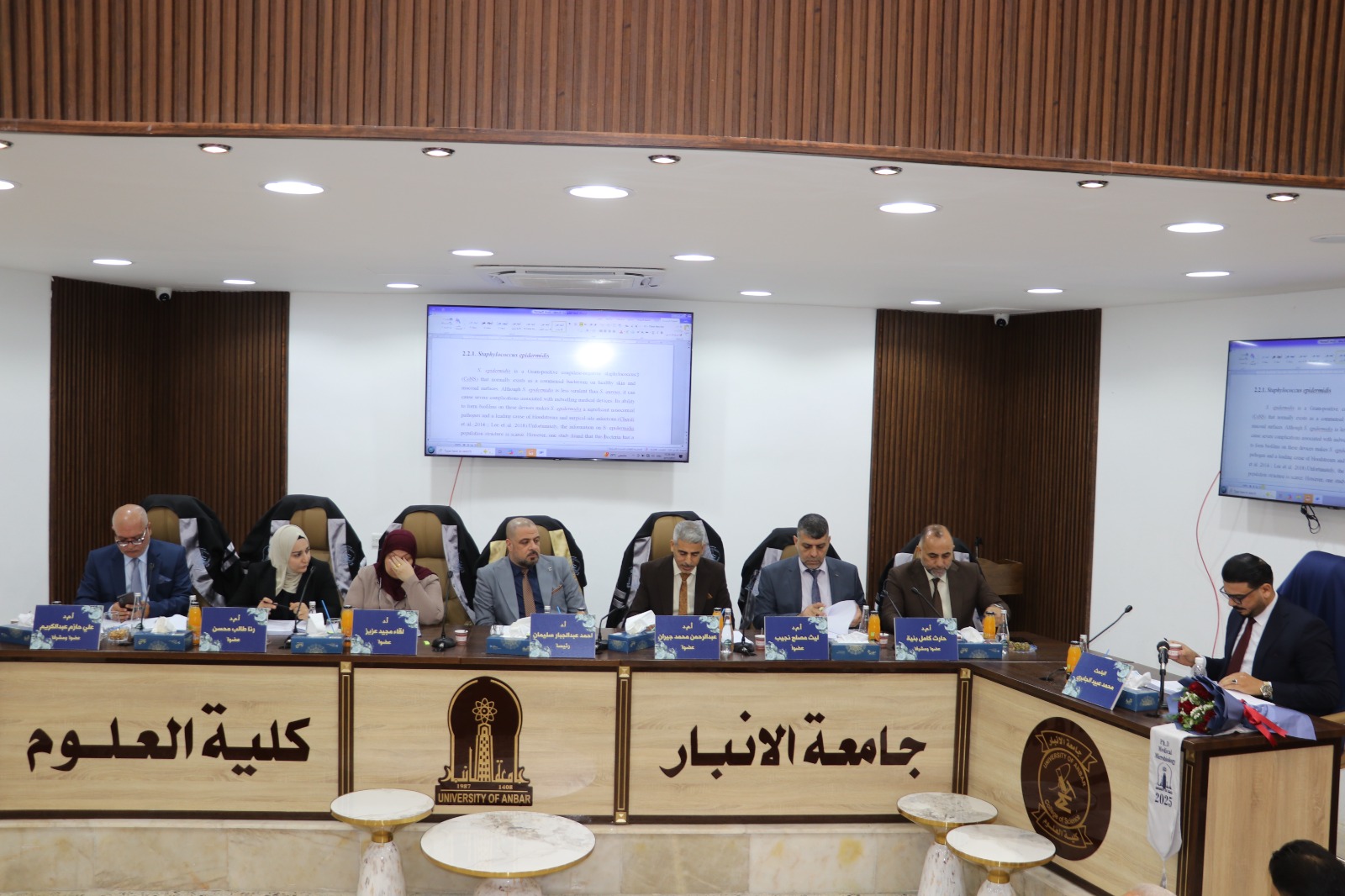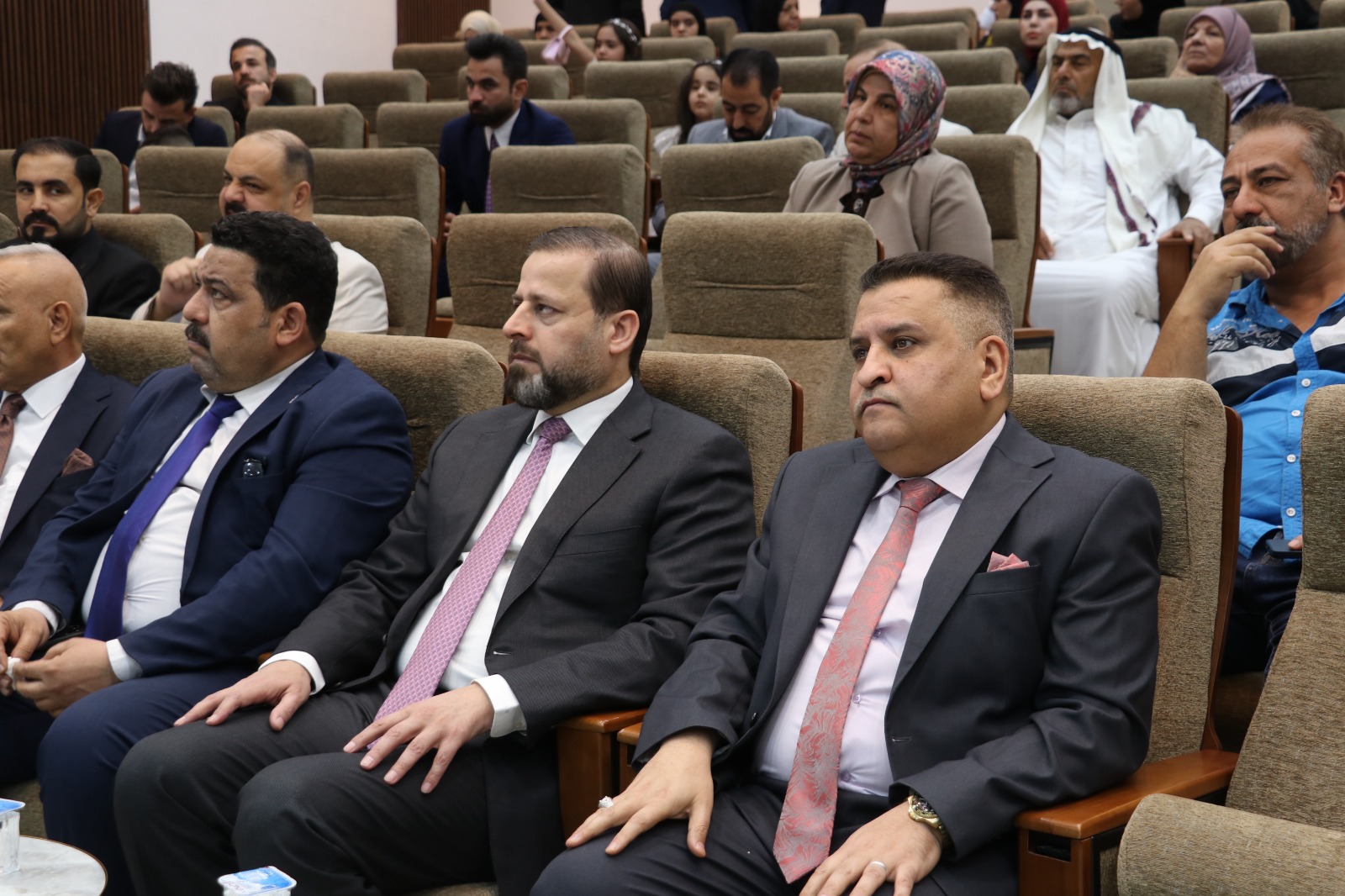Discussion of the dissertation of doctoral student " Muhammad Obaid Ibrahim"
The public discussion took place for the Doctoral student (Muhammad Obaid Ibrahim) at Anbar University, College of Science, Department of Biology, on Thursday, 11, September 2025, in Ibn Sina Hall, for his tagged thesis
" Sequencing Analysis of Mobile Genetic Elements in Coagulase Negative Staphylococcus isolated from Nosocomial infections in Anbar Province"
The discussion committee consisted of:
|
University of Anbar - College of Sciences - President |
Prof. Dr. Ahmed Abdul-Jabbar Suleiman |
|
University of Fallujah - College of Medicine - Member |
Prof. Dr. Liqaa Majeed Aziz |
|
University of Anbar - College of Medicine - Member |
Assist. Prof. Dr. Abdul-Rahman Mohammed Jiran |
|
University of Anbar - College of Sciences - Member |
Assist. Prof. Dr. Rana Talib Mohsen |
|
University of Anbar - College of Sciences - member |
Assist. Prof. Dr. Laith Musleh Najib |
|
University of Anbar - College of Education for Pure Sciences - Member and Supervisor |
Prof. Dr. Harith Kamel Biniyah |
|
University of Anbar - College of Sciences - Member and Supervisor |
Prof. Dr. Ali Hazem Abdul-Karim |
The findings showed that MR-CoNS isolates exhibit high levels of antimicrobial resistance, particularly against beta-lactams, along with a strong ability to form biofilms, increasing the risk of device-associated infections. All isolates were positive for the mecA gene, while SCCmec typing revealed the predominance of types II, IV, and V.
Most importantly, the study documented 12 novel gene sequences, which were deposited in the GenBank database, marking the first genetic records from Iraq and strengthening the country’s contribution to the field of molecular and genetic research. These findings highlight the urgent need for enhanced molecular surveillance and targeted strategies to combat antimicrobial resistance, safeguard patients, and limit the spread of hard-to-treat infections.

.jpeg)
.jpeg)
.jpeg)

.jpeg)


